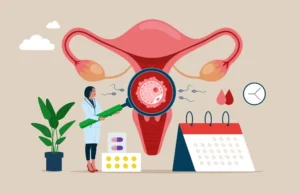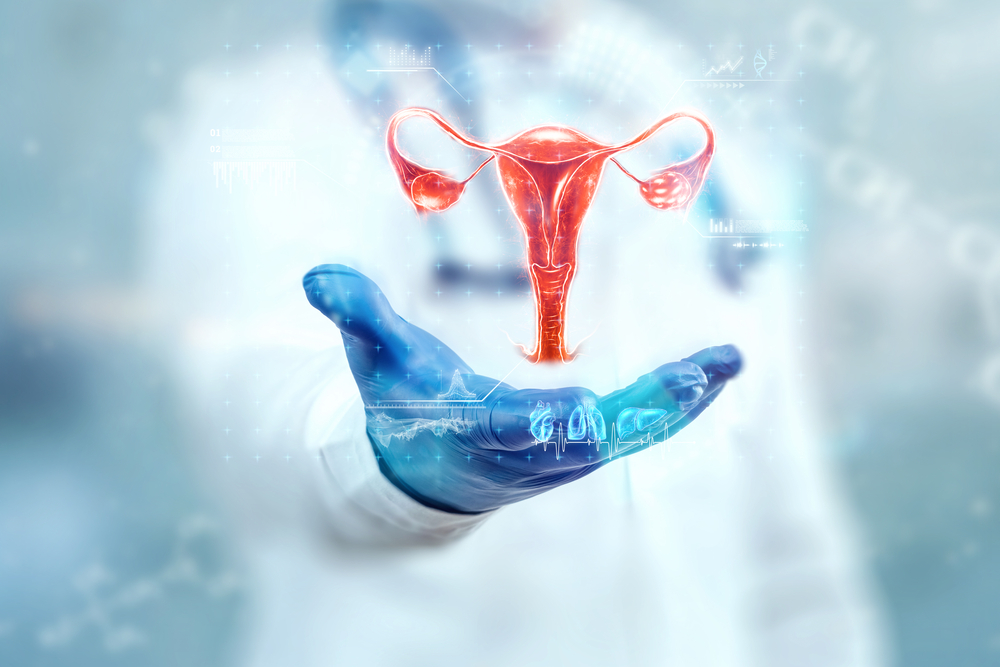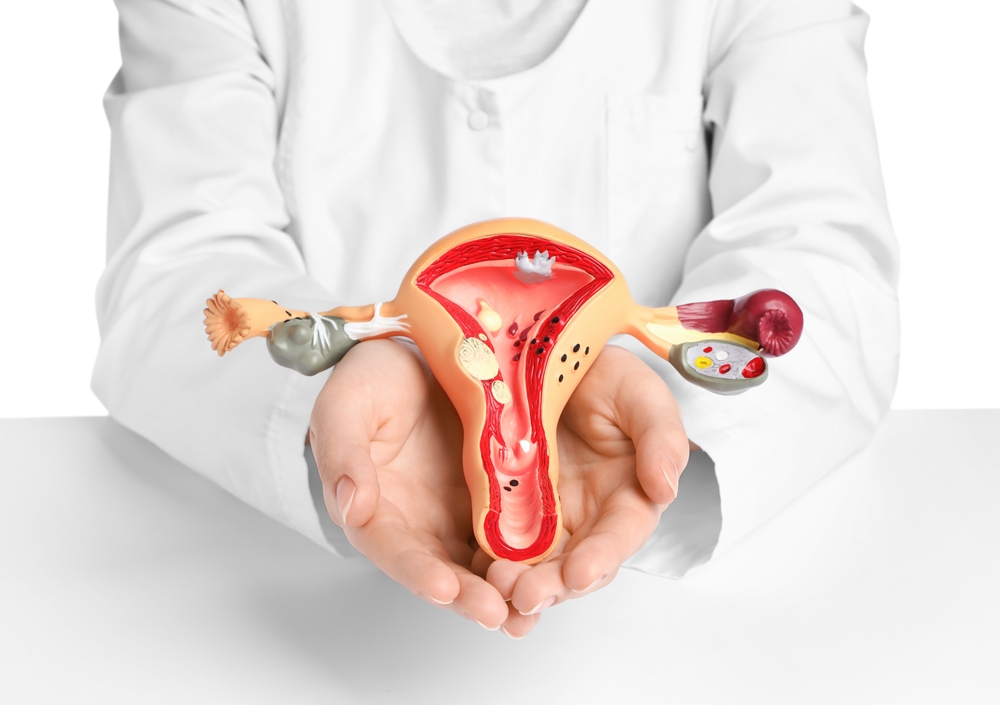Comprehensive Guide to Understanding and Managing PCOS

Polycystic Ovary Syndrome (PCOS) is a complex hormonal disorder affecting millions of women globally. Despite its prevalence, many myths and misconceptions surround the condition. This guide, rooted in research and medical expertise, offers practical advice to help you navigate PCOS with confidence.
What is PCOS?
PCOS, or Polycystic Ovary Syndrome, is a hormonal condition that disrupts the normal functioning of a woman’s ovaries. It’s characterized by irregular menstrual cycles, excess androgen levels (male hormones), and, in some cases, the appearance of small fluid-filled sacs (cysts) on the ovaries.

Contrary to popular belief, not every women with PCOS will experience problems with fertility
It’s a systemic condition with far-reaching effects on metabolic, reproductive, and mental health.
Why Does PCOS Occur?
The exact cause of PCOS remains unclear, but research points to a combination of genetic, environmental, and lifestyle factors. Insulin resistance and inflammation also play a significant role in its development.

Symptoms: Recognizing the Signs
PCOS presents differently in each individual, but common symptoms include:
- Irregular or Absent Menstrual Cycles: Skipping periods or having long gaps between them.
- Excessive Hair Growth: Hirsutism, or hair growth on areas like the face, chest, and back, affects many women.
- Persistent Acne: Caused by elevated androgen levels, it often resists conventional treatments.
- Weight Challenges: Unexplained weight gain, especially around the midsection, is a hallmark of PCOS.
- Hair Thinning: Many women experience hair loss or thinning on the scalp due to hormonal imbalances.
Recognizing these symptoms early can help in timely diagnosis and management.
Diagnosis: The Road to Answers
Diagnosing PCOS requires a combination of tests and evaluations. Doctors typically follow the Rotterdam Criteria, which require the presence of at least two of the following:
- Irregular or absent ovulation.
- High androgen levels (detected through symptoms or blood tests).
- Polycystic ovaries visible on an ultrasound.
Blood tests may also rule out other conditions like thyroid disorders, which can mimic PCOS symptoms.
Treatment: Finding What Works for You
There’s no universal treatment for PCOS, but the goal is to manage symptoms and prevent long-term complications. Treatment plans are tailored to individual needs, considering factors like age, severity of symptoms, and whether you’re planning to conceive.

Lifestyle Changes: Your First Line of Defense
- Diet: Focus on a low-glycemic, anti-inflammatory diet rich in whole grains, lean proteins, healthy fats, and plenty of vegetables.
- Exercise: Incorporate both cardio and strength training to improve insulin sensitivity and reduce weight.
- Stress Management: Chronic stress can exacerbate PCOS symptoms. Practices like yoga and meditation can help.
Medications
- Birth Control Pills: To regulate menstrual cycles and lower androgen levels.
- Metformin: Often prescribed to combat insulin resistance.
- Fertility Treatments: If conceiving is a priority, medications like Letrozole or Clomiphene can help stimulate ovulation.

The Role of Diet in PCOS Management
Did you know that dietary changes can dramatically improve PCOS symptoms? Research suggests that eating the right foods can stabilize blood sugar levels, reduce inflammation, and balance hormones.

Foods to Include:
- Whole grains like quinoa and brown rice.
- High-fiber vegetables like broccoli, spinach, and carrots.
- Lean proteins such as chicken, fish, and legumes.
- Healthy fats from sources like avocados, nuts, and olive oil.

Foods to Limit:
- Processed snacks and sugary drinks.
- Refined carbohydrates like white bread and pastries.
- Excessive saturated fats.

PCOS and Fertility: Finding Hope
Fertility challenges are one of the most emotionally taxing aspects of PCOS. However, the good news is that many women with PCOS successfully conceive with the right support.
- Track Ovulation: Apps and ovulation predictor kits can help.
- Weight Management: Even a 5–10% reduction in body weight can improve fertility outcomes.
- Fertility Assistance: Treatments like intrauterine insemination (IUI) or in vitro fertilization (IVF) may be options for some women.
The Mental Health Connection
PCOS doesn’t just affect your body; it impacts your mind as well. Women with PCOS often report higher rates of anxiety and depression due to hormonal imbalances, weight struggles, and the emotional toll of managing a chronic condition.

Coping Strategies:
- Seek therapy or counseling when needed.
- Join PCOS support groups to connect with others who understand.
- Prioritize self-care through hobbies, relaxation, and mindfulness exercises.

The Long-Term Outlook: Preventing Complications
When unmanaged, PCOS can lead to serious health issues like:
- Type 2 Diabetes: A result of long-term insulin resistance.
- Cardiovascular Disease: Women with PCOS often have higher cholesterol and blood pressure.
- Endometrial Cancer: Irregular periods can increase the risk of this cancer.
Regular check-ups and proactive management are crucial to prevent these complications.
Dispelling PCOS Myths
There’s no shortage of misinformation about PCOS. Here are a few myths debunked:
- Myth: PCOS only affects fertility.
- Fact: PCOS impacts metabolic health, mental well-being, and more.

- Myth: Losing weight cures PCOS.
- Fact: While weight management can reduce symptoms, PCOS is not “curable.”
Expert Insights and Latest Research
The medical community continues to explore innovative solutions for PCOS. Current research is delving into:
- Gut Microbiome: Understanding how gut health influences PCOS symptoms.
- Personalized Medicine: Tailoring treatments based on individual genetic profiles.
- New Therapies: From inositol supplements to advanced reproductive techniques.
Staying updated with these findings can empower you to make informed decisions about your health.
Final Thoughts: Empowering Women with PCOS

PCOS is a challenging condition, but with the right tools, support, and mindset, it’s manageable. Remember, your journey is unique—there’s no one-size-fits-all solution. Stay proactive, advocate for your health, and don’t hesitate to seek help when needed. Together, we can demystify PCOS and improve quality of life for all women affected by it.







